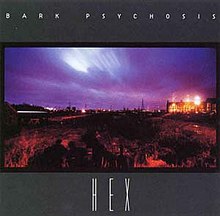Post-rock is a subgenre of experimental rock characterized by the exploration of textures and timbres as well as non-rock styles, often with minimal or no vocals, placing less emphasis on conventional song structures or riffs than on atmosphere for musically evocative purposes. Post-rock artists can often combine rock instrumentation and rock stylings with electronics and digital production as a means of enabling the exploration of textures, timbres and different styles. The genre emerged within the indie and underground music scenes of the 1980s and 1990s, but as it abandoned rock conventions, it began to show less musical resemblance to conventional indie rock at the time. The first wave of post-rock derives inspiration from diverse sources including ambient, electronica, jazz, krautrock, psychedelia, dub, and minimalist classical, with these influences also being pivotal for the substyle of ambient pop.

Dummy is the debut studio album by English electronic music band Portishead, released on 22 August 1994 by Go! Beat Records.
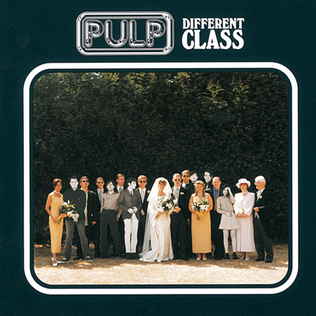
Different Class is the fifth studio album by English rock band Pulp, released on 30 October 1995 by Island Records.
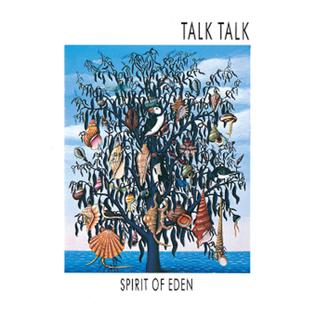
Spirit of Eden is the fourth studio album by English band Talk Talk, released in 1988 on Parlophone Records. It was compiled from a lengthy recording process at London's Wessex Studios between 1987 and 1988, with songs written by singer Mark Hollis and producer Tim Friese-Greene. Often working in darkness, the band recorded many hours of improvised performances that drew on elements of jazz, ambient, classical music, blues, and dub. These long-form recordings were then heavily edited and re-arranged into an album in mostly digital format. The results were a radical departure from Talk Talk's earlier synth-pop recordings, and would later be credited with pioneering the post-rock genre.
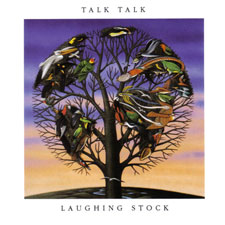
Laughing Stock is the fifth and final studio album by English band Talk Talk, released in 1991. Following their previous release Spirit of Eden (1988), bassist Paul Webb left the group, which reduced Talk Talk to the duo of singer/multi-instrumentalist Mark Hollis and drummer Lee Harris. Talk Talk then acrimoniously left EMI and signed to Polydor, who released the album on their newly revitalised jazz-based Verve Records label. Laughing Stock was recorded at London's Wessex Sound Studios from September 1990 to April 1991 with producer Tim Friese-Greene and engineer Phill Brown.

New Adventures in Hi-Fi is the tenth studio album by the American alternative rock band R.E.M. It was their fifth major-label release for Warner Bros. Records, released on September 9, 1996, in Europe and Australia, and the following day in the United States. New Adventures in Hi-Fi was the band's final album recorded with founding drummer Bill Berry, original manager Jefferson Holt, and long-time producer Scott Litt. The members of R.E.M. consider the recorded album representative of the band at their peak, and fans generally regard it as the band's last great record before a perceived artistic decline during the late 1990s and early 2000s. It has sold around seven million units, growing in cult status years after its release, with several retrospectives ranking it among the best of the band's recorded catalogue.

Fuzzy Logic is the debut album by the Welsh rock band Super Furry Animals. Recorded at Rockfield Studios in Wales, and released on the Creation label in May 1996, it was positively received by critics, who felt it was an eclectic if inconsistent mix of psychedelic music and glam rock, and was included in Q Magazine's list of recordings of the year. It has retained a modest respect among some critics; it was listed in Q's "Best British Albums Ever" in July 2004, and is included in the book 1001 Albums You Must Hear Before You Die. It contains two top 20 hits in "If You Don't Want Me to Destroy You" and "Something 4 the Weekend"; it also contains the singles "God! Show Me Magic" and "Hometown Unicorn". It reached number 23 in the UK Albums Chart on release. In 2013, NME ranked it at number 245 in its list of the 500 Greatest Albums of All Time.

Bark Psychosis are an English post-rock band/musical project from east London formed in 1986. They are one of the bands that Simon Reynolds cited when coining "post-rock" as a musical style in 1994, and are thus considered one of the key bands defining the genre.
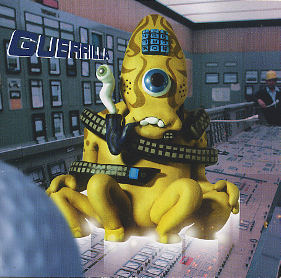
Guerrilla is the third studio album by Welsh rock band Super Furry Animals. The record was released on 14 June 1999 by Creation Records and peaked at number 10 in the UK Albums Chart. Guerrilla was conceived as a commercial 'pop' album and was produced by the band themselves, as regular producer Gorwel Owen felt exhausted after a busy schedule working for other bands. Recording took place at Real World Studios, Box, Wiltshire in mid-1998 with the group experimenting with a sampler for the first time and writing a number of songs in the studio. The band tried to create a 45-minute long, immediate sounding record, and therefore chose the upbeat songs from the 25 tracks which were recorded during sessions for the album. Guerrilla was chosen as the album's title as a pun on the group's name.

Searching for the Young Soul Rebels is the debut studio album by English band Dexys Midnight Runners, released on 11 July 1980, through Parlophone and EMI Records. Led by Kevin Rowland, the band formed in 1978 in Birmingham, England, and formed a strong live reputation before recording their first material. Recorded during April 1980, the album combines the aggressiveness of punk rock with soul music, particularly influenced by the Northern soul movement.
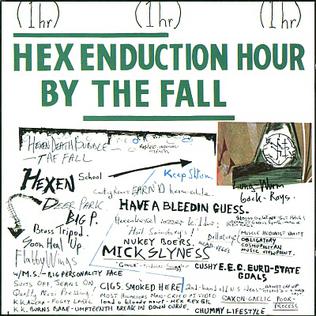
Hex Enduction Hour is the fourth studio album by the English post-punk group the Fall. Released on 8 March 1982, it was built on low-fidelity production values and caustic lyrical content of their earlier recordings, and features a two-drummer lineup. Frontman Mark E. Smith established an abrasive Northern aesthetic built as part of the 20th century literary traditions of kitchen sink realism and magic realism. Smith described the album as an often-satirical but deliberate reaction to the contemporary music scene, a stand against "bland bastards like Elvis Costello and Spandau Ballet ... [and] all that shit."

A Kiss in the Dreamhouse is the fifth studio album by British rock band Siouxsie and the Banshees, released on 5 November 1982 by Polydor Records. The record marked a change of musical direction, as the group used strings for the first time and experimented in the studio. Guitarist John McGeoch played more instruments, including recorder and piano. For Julian Marszalek of The Quietus, the release proved the Banshees to be "one of the great British psychedelic bands."
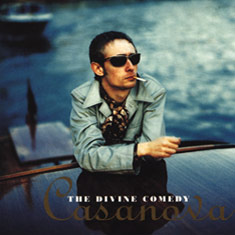
Casanova is the fourth studio album by Northern Irish chamber pop band the Divine Comedy. It was released in 1996 by Setanta Records, and it happened to be the band's commercial breakthrough. It was certified Gold in the UK in July 1997, aided by the release of the album's first single, "Something for the Weekend", which reached No. 13 on the charts. Two other singles released from the album, "Becoming More Like Alfie" and "The Frog Princess", charted at No. 27 and No. 15, respectively.
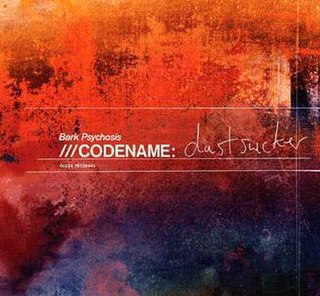
Codename: Dustsucker, stylised as ///CODENAME: dustsucker, is the second studio album by English post-rock band Bark Psychosis. It was released on 28 July 2004 on Fire Records. The album was recorded at DustSuckerSound, a private studio run by Bark Psychosis member Graham Sutton in east London, between 1999 and 2004. It notably features the contributions of Lee Harris, the drummer and percussionist of early post-rock purveyors Talk Talk.

White Light from the Mouth of Infinity is the seventh album by the American experimental rock band Swans. It was released in 1991, through the record label Young God. The band supported the album with a North American tour.

Simon Reynolds is an English music journalist and author who began his career at Melody Maker in the mid-1980s. He subsequently worked as a freelancer and published a number of books on music and popular culture.
Boymerang was the drum and bass project of the English post-rock musician Graham Sutton.

The Comforts of Madness is the debut studio album by English alternative rock band Pale Saints. It was released on 12 February 1990 by 4AD.

A Celebration of Endings is the eighth studio album by Scottish alternative rock band Biffy Clyro. It was produced by Rich Costey and was released on 14 August 2020. It debuted at number one on the UK Albums Chart, making it the band's third consecutive studio album to top the chart.

Rest in Blue is a 2021 album from Scottish soft rock musician Gerry Rafferty, compiled from recordings made shortly before his death.
